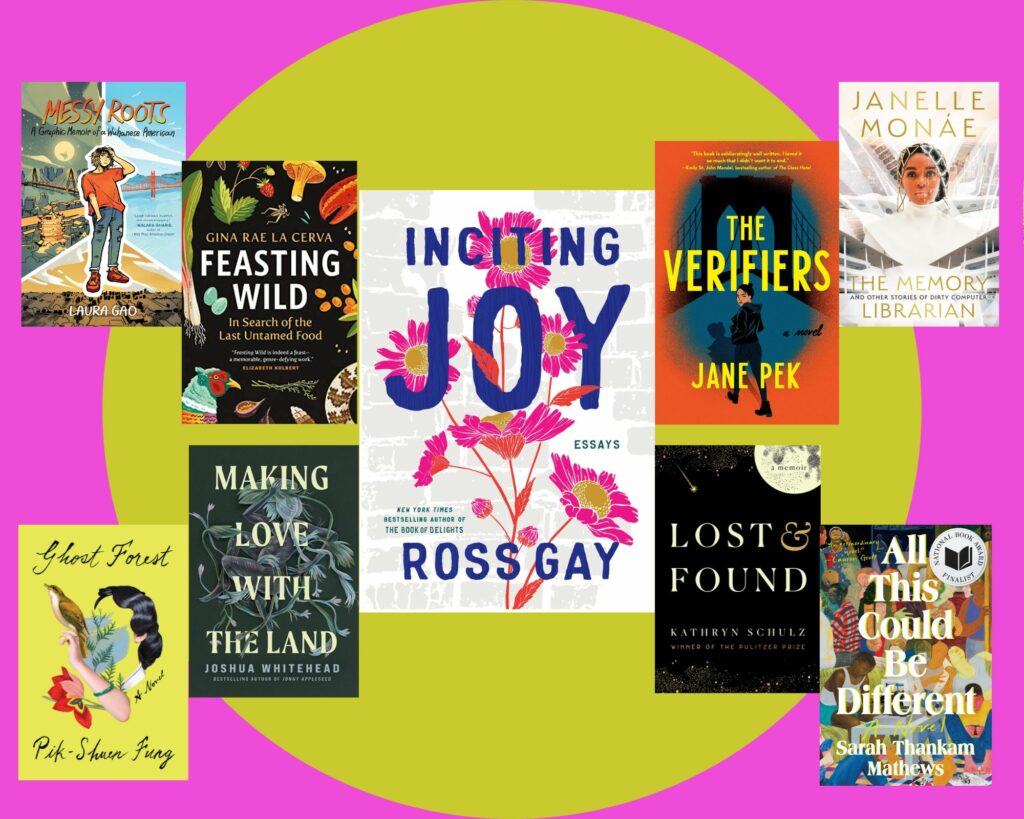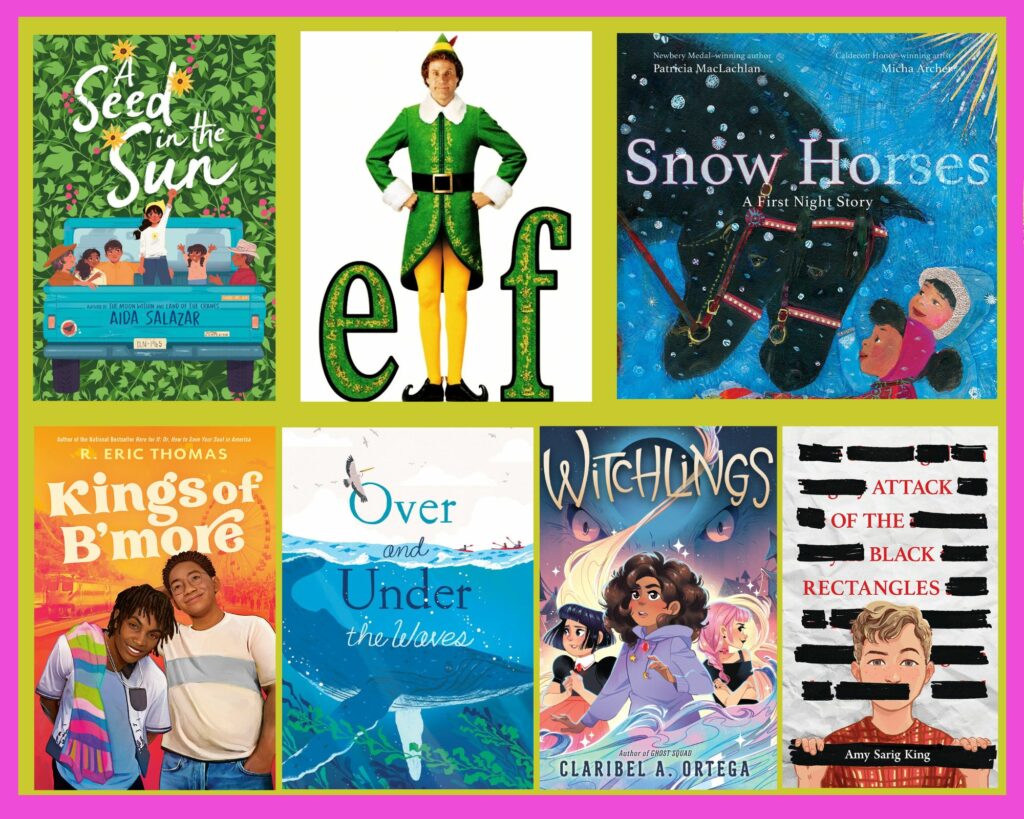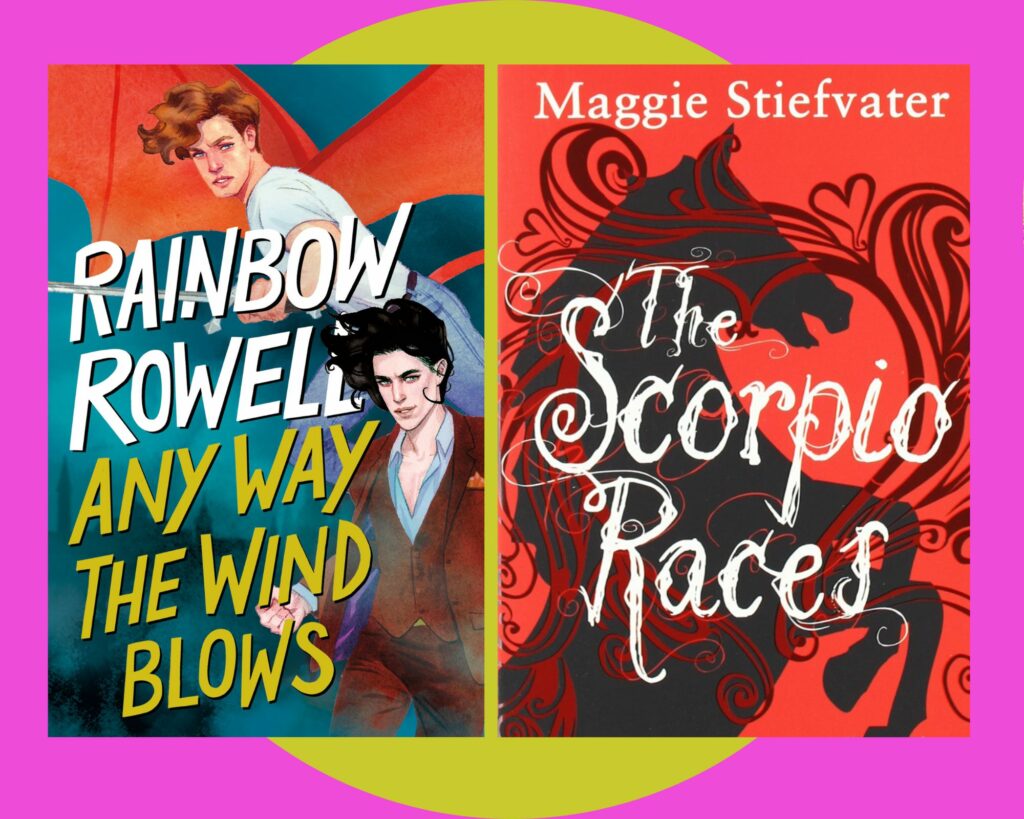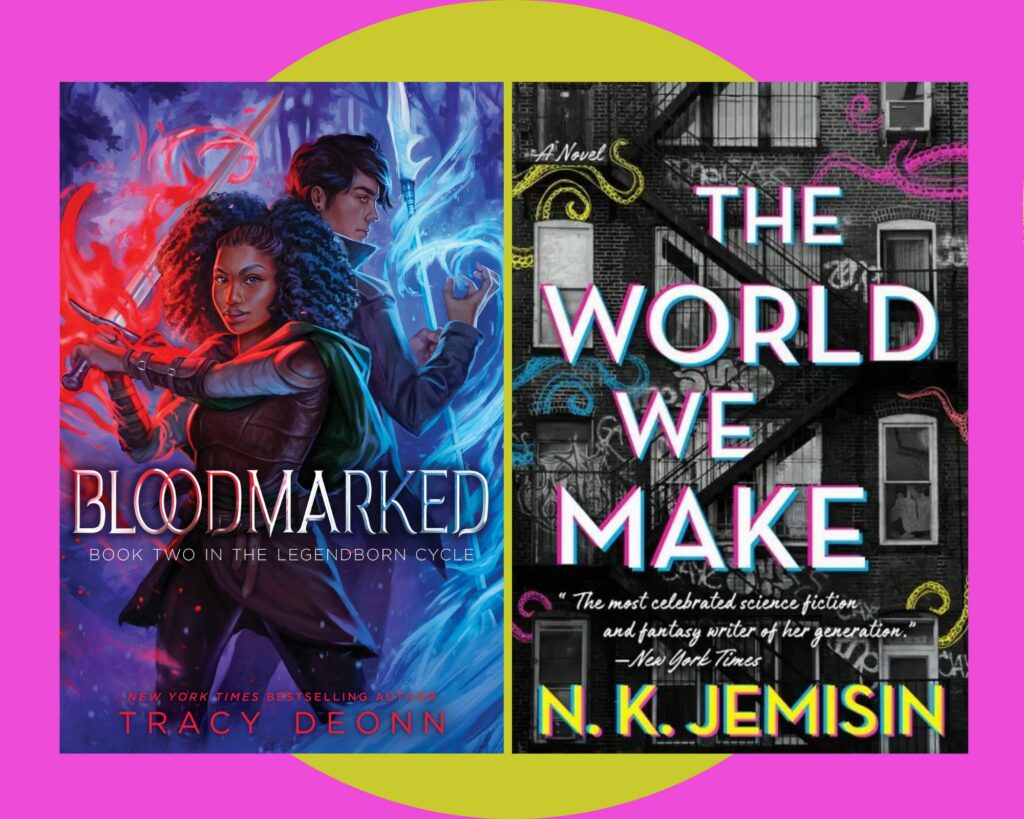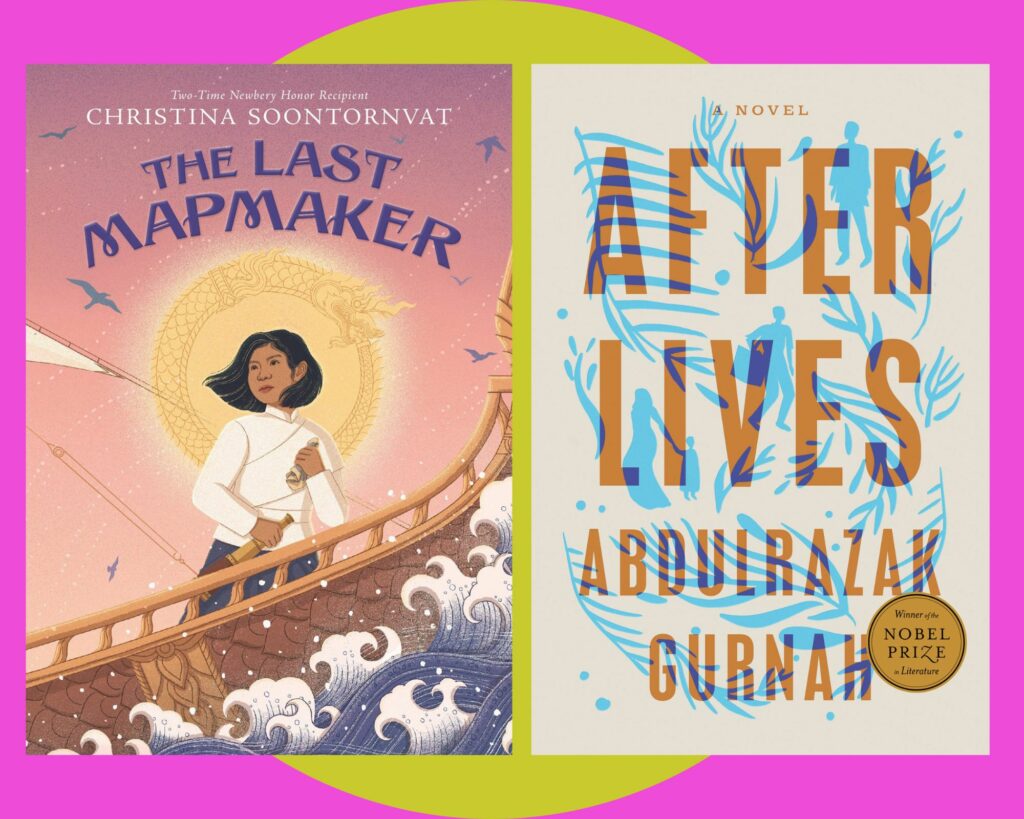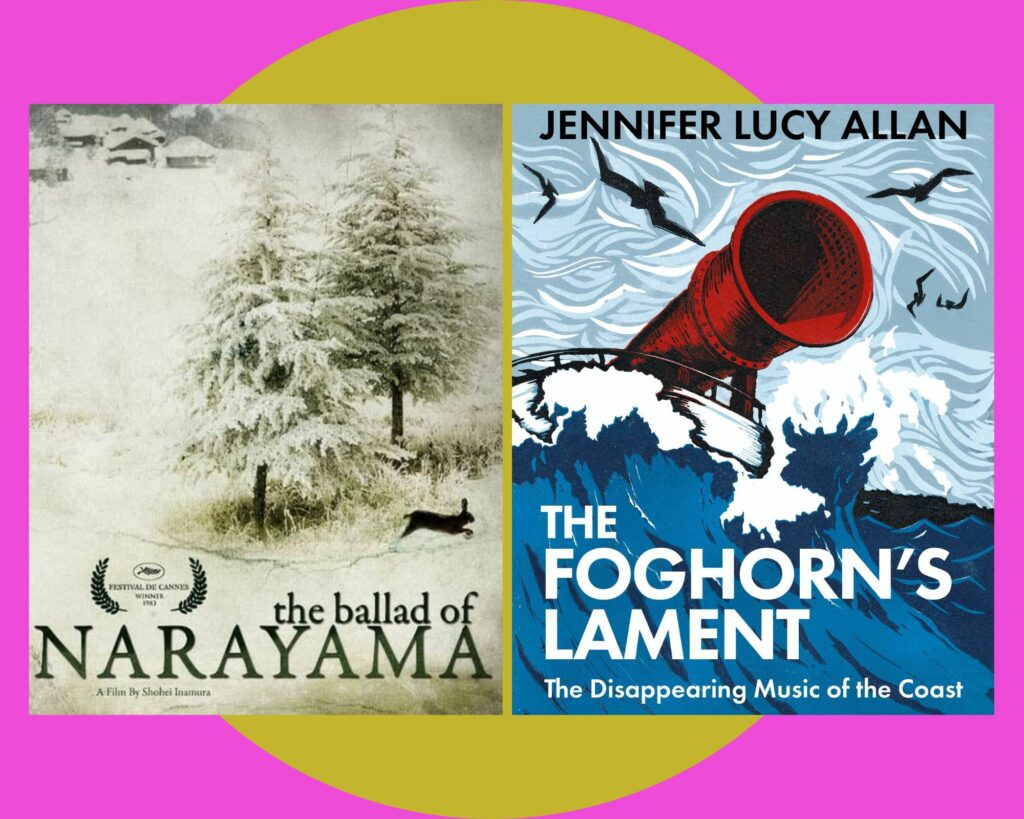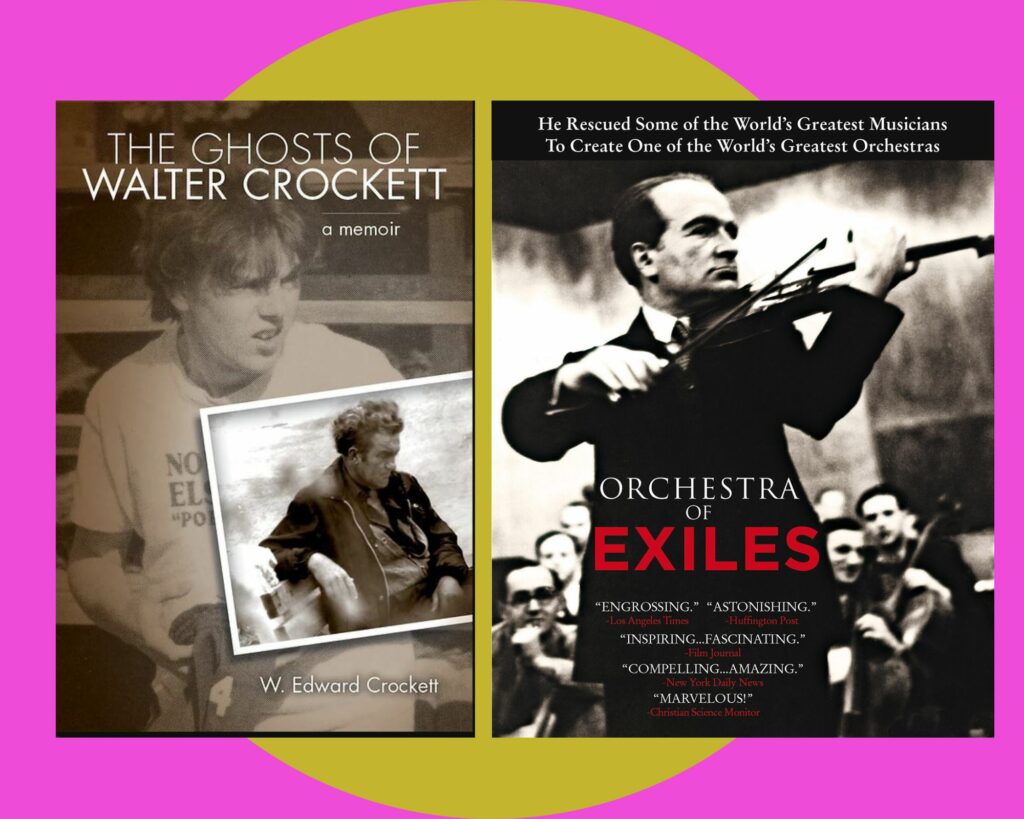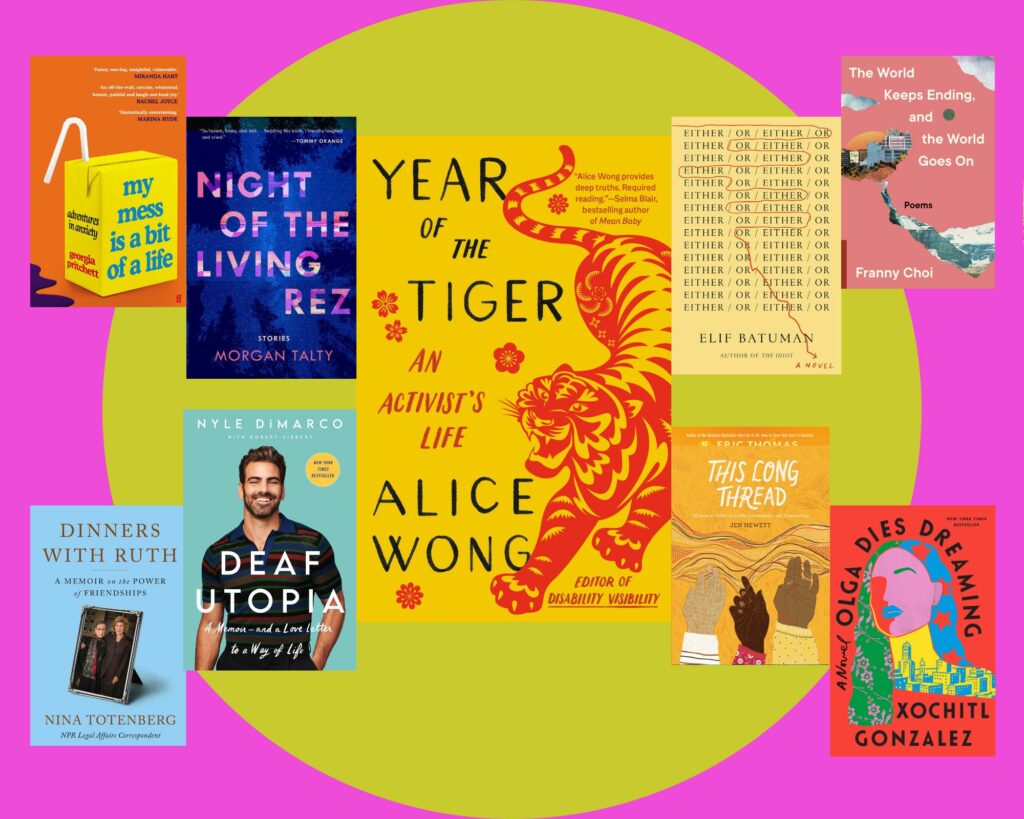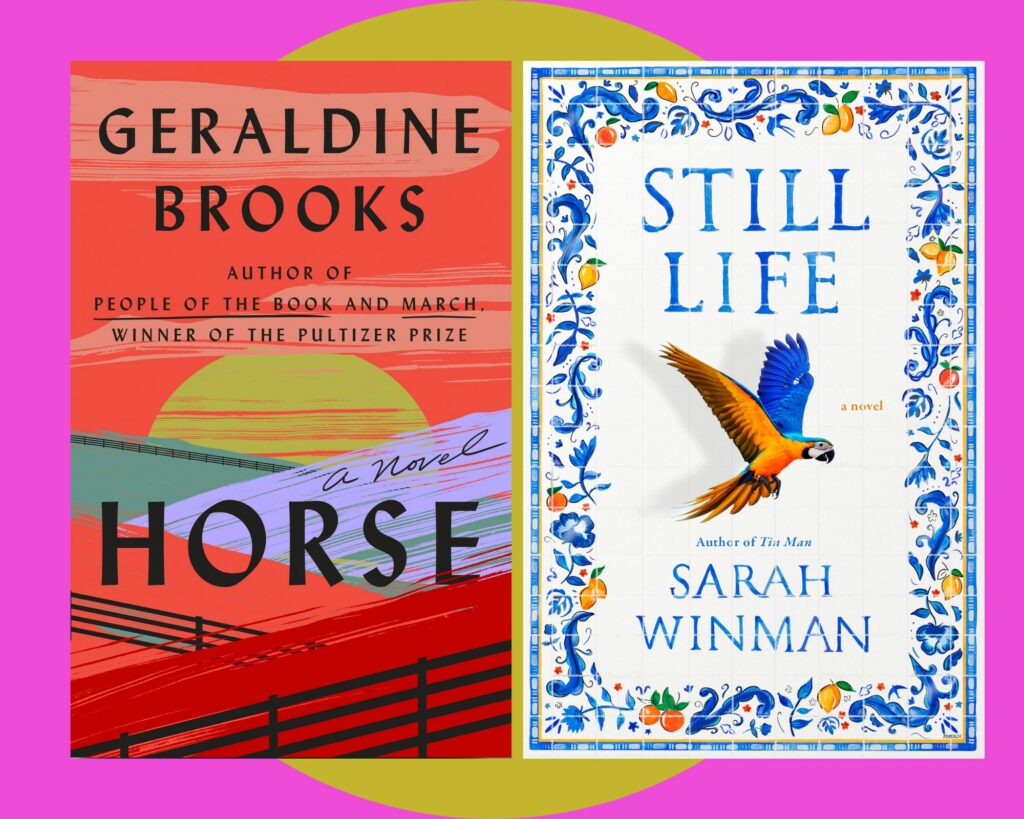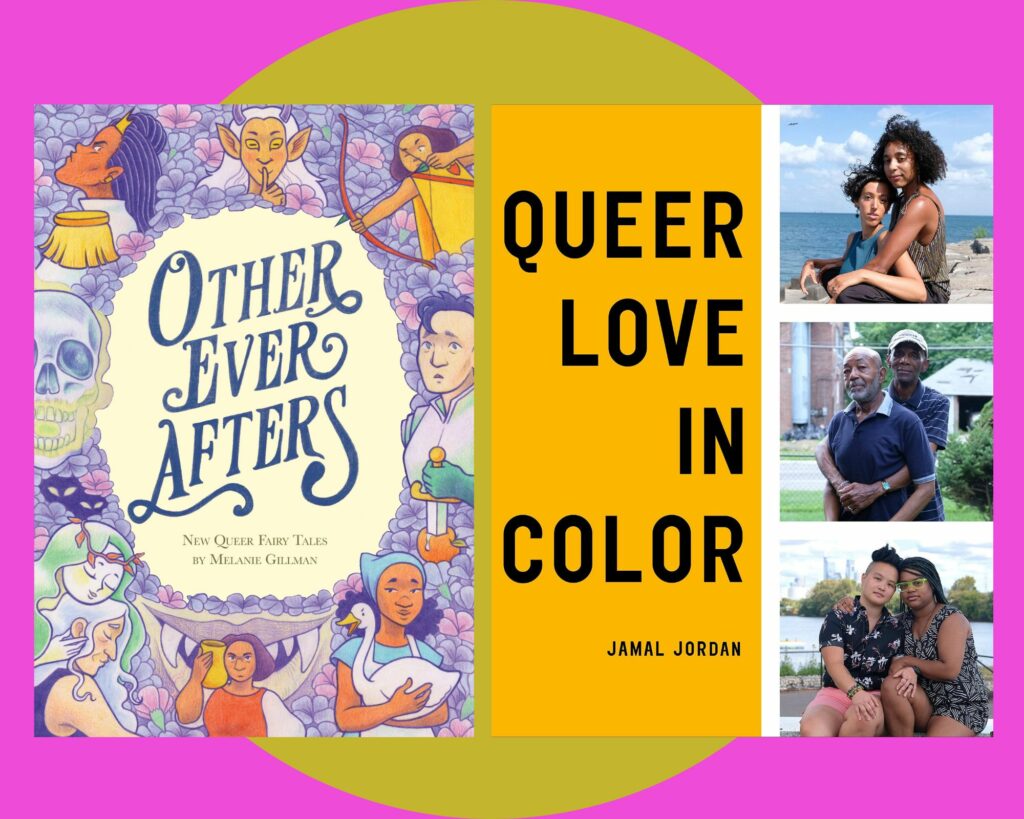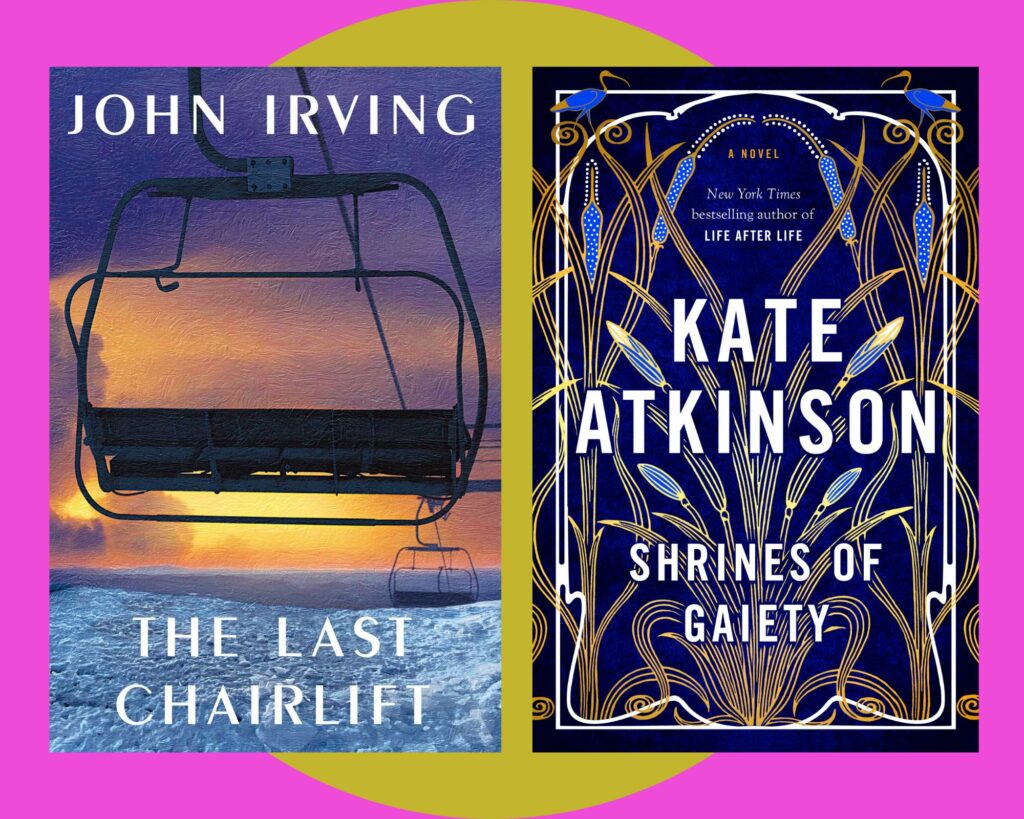The World We Make: December Staff Picks
Wishing everyone in our community a peaceful New Year—and stacks of books to enjoy on long winter nights. This December we share our Top 2 in 2022 Staff Picks from the library. Read on for elves, adventures, audiobooks, local authors, and more! Hope to see you at the library soon.
Cindy’s (Top 2 Holiday!) Picks
One of my absolute favorite holiday movies is Elf, with Will Ferrell. IMDB describes it best: “Raised as an oversized elf, Buddy travels from the North Pole to New York City to meet his biological father, Walter Hobbs, who doesn’t know he exists and is in desperate need of some Christmas spirit.”
It’s a wonderful feel-good, laugh fest that ticks off all the emotion boxes AND delivers some great lines such as, “We elves try to stick to the four main food groups: candy, candy canes, candy corns, and syrup,” “I’m a cotton-headed Ninnymuggins!” and “The best way to spread Christmas cheer is singing loud for all to hear.” Put this holiday gem on hold today!
Another great holiday title is an old family favorite since 1983 when this movie came out: A Christmas Story with Peter Billingsley as the main character. “In the 1940s, a young boy named Ralphie Parker attempts to convince his parents, teacher, and Santa Claus that a Red Ryder Range 200 Shot BB gun really is the perfect Christmas gift.” A couple of great quotes from this touching but hilariously funny movie are: “I can’t put my arms down!” and “I triple dog dare ya!” Ralphie and his little brother will leave you pining for the days of yore.
Julia’s Picks
I spent much of this year diving into PPL’s incredible Teen and Children’s collections as well as CloudLibrary, so it’s no surprise that my two favorite finds of 2022 were both YA audiobooks (though they are available in print form as well).
Before reading the Simon Snow trilogy by Rainbow Rowell, I would have said I wasn’t into romance, especially when it involved vampires. I was gloriously wrong. This is a clever, funny, emotional series that upends fantasy tropes left and right. The final book, Any Way the Wind Blows, tore my heart out with its depiction of what comes after “happily ever after.” But definitely start with Book 1, Carry On! The audiobooks, narrated by Euan Morton, are top notch.
The Scorpio Races, by Maggie Stiefvater, is an atmospheric, character-driven fantasy rooted in Celtic legend. Each November on the small island of Thisby, riders race the island’s famous horses along the shore. But these are no ordinary horses! They are capaill uisce: fierce, carnivorous water horses that lure their riders into the sea. The story centers on reigning race champion Sean Kendrick and fiery, determined Puck Connolly, two young islanders with their own reasons for needing to win. Stiefvater’s subtly lovely prose captures both the magic and the hardship of island life. Perfect listening for a chilly day, with a cup of tea and a pile of blankets.
Emily’s Picks
Two of my most anticipated books of the year came out in November, and I was completely absorbed in the breathtaking storytelling found in each.
Bloodmarked is Tracy Deonn’s captivating sequel to Legendborn, which follows the story of a grieving girl who grows into incredible powers, steeped in Arthurian legends, set at UNC Chapel Hill. The magic and action are intense, the character and world building are impressive, and I can’t wait to see what happens next for Bree! (And how the love triangle is resolved!)
The World We Make is another excellent book from N.K. Jemisin, and it’s best heard as an audiobook — Robin Miles narrates this and its previous chapter, The City We Became, with her whole heart, plus a slew of accents and characterizations. Sound and voice effects complete the creepy atmosphere as aliens come to Earth to change New York City as we know it.
Vicky’s Picks
My two top books of the year? It’s an agonizing assignment, and the titles I consider change from day to day. Commit I must, so here’s two.
This past spring, Newbery honoree and Sibert winner Christina Soontornvat brought us The Last Mapmaker, a middle-grade adventure set in a Thai-inspired fantasy world. Sai is lowborn, but she pretends to be upper-class in order to secure a position as apprentice to Mangkon’s Master Mapmaker. The clock is ticking on her deception, so when her master is tapped to join an expedition to the unexplored Sunderlands, she sees in it her opportunity to strike out and establish herself. The voyage raises penetrating questions into colonialism and the problematic nature of exploration and discovery. That Soontornvat weaves these difficult questions into a 100-percent satisfying rip-roaring maritime adventure establishes her as a master in her own right.
And for adults, Nobel Laureate Abdulrazak Gurnah reaches back into Tanzanian history to offer up Afterlives, a generational saga set in what begins as Deutsch-Ostafrika, becomes a British protectorate after World War I, and eventually achieves independence as Tanzania by the end of the book. Sweeping though the historical setting may be, the novel holds at its heart its characters: Khalifa, the merchant’s rascally bookkeeper; Asha, his angrily devout wife; Afiya, their ward who comes to them as a child; and Hamza, the young man who joins the German Schutztruppe and finds refuge with Afiya after. Their lives are all touched in some degree by colonialism and its brutalities, but they nevertheless live on, and Gurnah’s careful, loving exploration of each fully three-dimensional character folds readers in. I listened to the audio edition, and Damian Lynch’s narration is as loving as Gurnah’s writing.
Ask me on another day, and I might mention two different titles. But these have stayed with me for months as two of my favorite reads of 2022.
Becca’s Picks
2022 was filled with amazing books. My favorite 2022 release is Babel, by R.F. Kuang. Since I’ve already sung its praises in another Staff Picks post, I figured I would highlight my second-favorite books published this year:
Fiona and Jane (Jean Chen Ho) follows the trajectories of best friends as they graduate from college and become geographically separated. Told in alternating narrations, the book follows Fiona and Jane as individuals, navigating the tragedy and beauty in their separate lives and the ebb and flow of their friendship. I loved this meditation on friendship, love, and loneliness; it’s been a while since a book has made me cry, but this one did the trick!
I love books where a story folds in on itself, where every chapter provides a new glimpse of our characters’ internal lives. In Lungfish (Meghan Gilliss), we receive glimpses of the present and past of Tuck, a woman who is trying to support her husband (who is detoxing from opioids) and young daughter while isolated on a coastal Maine island with no money and no food. This book is visceral; while reading, I found myself eating constantly, as if to send the food through the pages and into the bellies of Tuck and her family. I also read this book in record time, voraciously hoping they were able to leave the island before winter descends. Don’t miss out on this gem by a great local author!
Janice’s Picks
In The Swimmers, award-winning author Julia Otsuka has written a novel exploring both ordinary and extraordinary dimensions of daily life. The pool is routine, refuge and subculture. “Up above there are wildfires, smog alerts, epic droughts, paper jams, teachers’ strikes, insurrections, revolutions, blisteringly hot days that never seem to let up (Massive “Heat Dome” Permanently Stalled over Entire West Coast), but down below, at the pool, it is always a comfortable eighty-one degrees.” Regular lap swimmers might easily recognize themselves somewhere in Otsuka’s descriptions of rigid pool routines, such as rigorously counting laps, marking swim time to the minute, unvarying arrival times, and stubbornly choosing the same lane. When the pool develops a mysterious crack, the novel invokes the challenges of dementia, the coronavirus pandemic, and the general unpredictability of our lives.
The Wall, a 1968 international bestseller by Austrian writer Marlen Haushofer (translated by Shaun Whiteside)—a book variously described as dystopian, utopian, feminist, and science fiction—has been recently reissued in English by New Directions. The narrator is a middle-aged woman vacationing in the Austrian mountains, who suddenly finds herself cut off from civilization (which seems to have been destroyed) by an invisible wall. Both compelling and haunting, the narrator recounts her challenges to sustain daily existence. “But I would rather turn to the second of July, the day I realized my life depended on the number of matches I had left. That thought struck me, as all disagreeable thoughts do, in the early hours of the morning.” The Wall was adapted into a 2013 film, available on DVD at PPL.
Aaron’s Picks
Right around the beginning of the year, I watched the stunning Ballad of Narayama (Keisuke Kinoshita, 1958) on a cold night in the snow-covered White Mountains. The film, based on a 1956 novella by Shichirō Fukazawa, tells a tale based on the mythical practice of ubasute, in which elder members of a community, after reaching a certain age, are transported to a mountain top and left to their deaths. The practice, as presented in the film, is a measure used to ensure enough resources are available for the younger members of a family. Predictably, some elders are more resigned to their fate than others, and some of those left behind are more willing to leave their beloved parents to their fates than others. The drama crosses three generations of the family at the center of the film and extends to their entire village. That village, in addition to the snowy mountaintop destination of the elders and nearly every other setting (along with weather of all kinds, water features, etc.), was ingeniously created and stunningly filmed on a soundstage, rather than in more realistic settings (not the case for a more naturalistic 1983 remake). Though the production is heavily influenced by Kabuki theater, the cinematography is more dynamic than a usual filmed stage production, and the limitations of the soundstage add to the mythical and magical feeling of the film, rather than detracting from it.
As the year draws to a close, I am enjoying Jennifer Lucy Allan’s The Foghorn’s Lament, based on the author’s years of research on the history, culture, and meaning surrounding the signature sound of our foggy coastlines, after a long wait. Allan searches in archives, spends a month almost entirely alone at a lighthouse in the Shetland Islands, and plumbs the depths of her personal cultural references to tell the fascinating story. I first became aware of the research that would become this eagerly-awaited-by-me book when I shared a session with the author at a conference on sound art held in the Azores, the Portuguese-held archipelago in the middle of the North Atlantic, in 2017. The day following our paper presentations, the stakes for the successful operation of foghorns and other navigational aids was made clear in a keynote lecture by celebrated composer and sound artist Hildegard Westerkamp. In what was clearly a planned but nonetheless incredibly difficult interlude in her presentation, Westerkamp emotionally explained the personal significance of the conference’s location — in 1957 her beloved older brother, who had been a sailor, was lost at sea when the tall-ship Pamir sank in a hurricane just west of the Azores. That ship didn’t run aground where a foghorn might have saved it, but trouble with radio transmissions and other then-current technology contributed to its sinking. Allan’s paper, Westerkamp’s lecture, and now The Foghorn’s Lament are all linked for me now, to a past and present we can see and hear as close to home as Portland Head Light, where a foghorn still stands and where the Annie C. Maguire was lost against the rocks in 1886.
Fionna’s Picks
I loved The Man Who Could Move Clouds, a memoir by Ingrid Rojas Contreras—one of my October Staff Picks.
Another favorite book that I read in 2022 was a 2019 collection of stories titled Salt Slow by Julia Armfield. I found myself looking through Armfield’s back list after being enchanted with her debut novel (Our Wives Under the Sea) which came out this year. Salt Slow was odd and beautiful and the titular story could very well become a dystopian folk tale for the next generation.
Nina’s Picks
Combining my love of local history and memoir, The Ghosts of Walter Crockett is a bittersweet story of growing up in the 1960s-1970s on Munjoy Hill. Told by Walter’s son, Ed Crockett, the book focuses on life with seven siblings, a mother who tried her hardest to cope (with varying degrees of success), and a father who abandoned his wife and young children to live on Portland’s gritty streets. Ed paints a depressing yet ultimately hopeful picture of life on “The Hill” and his struggle to come to terms with its challenges.
October 2022 brought the Violins of Hope exhibit to Portland, an extraordinary collection of string instruments that were owned by Jewish musicians during the Holocaust. These instruments were displayed at the Maine Jewish Museum and played by musicians of the Portland Symphony during performances of the Verdi Requiem. Orchestra of Exiles is a DVD chronicling violinist Bronisław Huberman’s successful attempt to relocate Jewish European musicians at a time when Hitler was coming to power. Over four years, Huberman helped save nearly 1000 people and created what became the Israel Philharmonic—one of the world’s greatest orchestras.
Stephanie’s Picks
Top Two: Horse by Geraldine Brooks; Still Life by Sarah Winman.
Other big faves: Painted Horses by Malcolm Brooks (hmm: 2 Horse titles and 2 Brooks authors); Small Things Like These by Claire Keegan; Vigil Harbor by Julia Glass; These Precious Days by Ann Patchett.
Elizabeth’s Picks
At the year’s end I’ve returned to two books that brought me joy in 2022. Illustrator and writer Melanie Gilman’s Other Ever Afters is a graphic novel of new queer fairy tales. Playful, compassionate, and subversive, Other Ever Afters says Let’s reimagine old stories!—let’s not get stuck there!—let’s write completely new ones! Their new fairy tales explore friendship, community, purpose, and change along with the adventures of mermaids, giants, and knights. (For additional joyous, complex queer fairy tales—of foxes, robots, and dragons—see last year’s wonderful The Fox’s Tower and Other Tales by Yoon Ha Lee). To all who write new queer stories: thank you.
Jamal Jordan’s photo documentary project Queer Love in Color is a further celebration of queer love, here in this world, in these times, and that’s worth celebrating every day. Dozens of stories and portraits of joy, support, and togetherness fill the book. When Tzu-Yung talks about falling for Briyana, they say, “I started to allow myself to be silly and fun and airy like I am now.” Lady Phyll writes, “In each other’s arms we create a world of possibilities, tenderness, and empowerment.” And Jamal Jordan muses, “Perhaps the most transformative thing we can do is take the love that we have for others and turn it inward, towards ourselves.”
Eileen’s Picks
What glorious anticipation it is, watching my name slide toward the top of hold lists!
Kate Atkinson and John Irving are two of my very favorite authors, so imagine my delight to have read a 2022 release by each of them in the past month.
The Last Chairlift is classic John Irving from start to finish. From the familiar environs of the author’s native Exeter, New Hampshire to incomparably quirky characters, not to mention personal obsessions and social issues, I knew I was in for a seriously satisfying literary ride. At 80 years old, John Irving says this is his last long novel. Certainly, at 889 pages it is long, but finally and foremost it is immensely satisfying in all Irving’s usual ways. Comparisons and references to Charles Dickens abound when John Irving is up for discussion; that seems right to me. I think “The Washington Post Book World” quote sums up his storytelling: “Irving’s characters can beguile us onto thin ice and persuade us to dance there. His instinctive mark is the moral choice stripped bare, and his aim is impressive.”
Kate Atkinson’s new novel, Shrines of Gaiety, made my wait for The Last Chairlift not only tolerable but experientially short-and-sweet. Good grief, what a mind and what a writer! I know I said that Irving’s characters are incomparably quirky…and I absolutely meant it…but Atkinson gives him some serious competition, with a Great British twist.
Really, honestly, seriously: if you cannot get your hands on The Last Chairlift or Shrines of Gaiety right this minute, picking up anything written by either of them will get you through the wait.
Both Atkinson and Irving tell stories that are addictive and deep, spoken in voices that matter. For sheer entertainment they are hard to beat, but they deliver so much more.
May 2023 bring us shorter books by John Irving, any books by Kate Atkinson, joy, peace, and hearts so full we cannot contain them!
As ever, thanks for reading! To find all the Top Two in 2022 Staff Picks discussed and pictured here, explore The World We Make: December Staff Picks.
If you’re looking for more reading ideas, that is our very favorite thing! Check out our Your Next Great Read service for readers of all ages, or simply reach out to our staff at readersadvisory@portlib.org for your own personalized booklist of reading suggestions.
posted: , by Elizabethtags: Library Collections | Recommended Reads | Adults | Seniors | Art & Culture | Readers Writers

